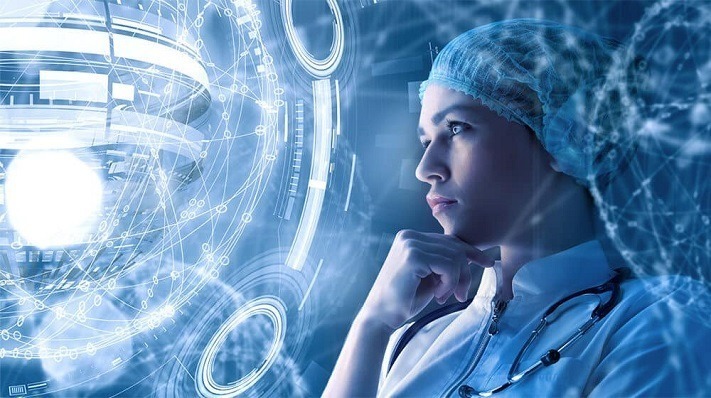Next: Analyzing typing speed, speech and sleep patterns to identify cognitive decline, dementia, Parkinson’s, and more
 AI May Help Identify Patients With Early-Stage Dementia (The Wall Street Journal):
AI May Help Identify Patients With Early-Stage Dementia (The Wall Street Journal):
Researchers are studying whether artificial-intelligence tools that analyze things like typing speed, sleep patterns and speech can be used to help clinicians better identify patients with early-stage dementia.
Huge quantities of data reflecting our ability to think and process information are now widely available, thanks to watches and phones that track movement and heart rate, as well as tablets, computers and virtual assistants such as Amazon Echo that can record the way we type, search the internet and pay bills…
The goal of using artificial intelligence in health care isn’t to replace humans but rather to assist doctors, says P. Murali Doraiswamy, professor and director of the Neurocognitive Disorders Program at Duke University School of Medicine. “This isn’t a battle between AI and doctors, it’s about how to optimize doctors’ ability to deliver better care,” he says.
Dr. Doraiswamy has collaborated on several projects involving machine learning and neurodegenerative diseases, including a study of internet-search behavior with Microsoft Corp. In that study, researchers found that machine-learning algorithms trained to analyze subjects’ cursor movements in terms of speed, changes in direction and tremors, as well as whether the subjects repeated search queries or repeatedly clicked on search results, could help detect Parkinson’s disease. Preliminary analyses showed the strategy holds promise for detecting Alzheimer’s, as well.
The Study:
Detecting neurodegenerative disorders from web search signals (npj Digital Medicine):
- Abstract: Neurodegenerative disorders, such as Parkinson’s disease (PD) and Alzheimer’s disease (AD), are important public health problems warranting early detection. We trained machine-learned classifiers on the longitudinal search logs of 31,321,773 search engine users to automatically detect neurodegenerative disorders. Several digital phenotypes with high discriminatory weights for detecting these disorders are identified. Classifier sensitivities for PD detection are 94.2/83.1/42.0/34.6% at false positive rates (FPRs) of 20/10/1/0.1%, respectively. Preliminary analysis shows similar performance for AD detection. Subject to further refinement of accuracy and reproducibility, these findings show the promise of web search digital phenotypes as adjunctive screening tools for neurodegenerative disorders.
News in Context:
- Using Reddit as a population-level “mental health tracker” during the COVID pandemic
- Machine-learning study finds EEG brain signatures that predict response to antidepressant treatments
- Study combines neuroimaging with machine learning to predict, with 96% accuracy, whether high-risk 6?month-old babies will develop autism spectrum disorder (ASD) by age 2


